
Filter News
Area of Research
- Advanced Manufacturing (2)
- Biology and Environment (23)
- Clean Energy (18)
- Climate and Environmental Systems (1)
- Computational Engineering (1)
- Computer Science (7)
- Fusion and Fission (2)
- Fusion Energy (4)
- Isotopes (1)
- Materials (22)
- National Security (6)
- Neutron Science (5)
- Nuclear Science and Technology (8)
- Quantum information Science (3)
- Supercomputing (27)
News Type
News Topics
- (-) Computer Science (37)
- (-) Environment (35)
- (-) Frontier (8)
- (-) Molten Salt (2)
- (-) Nuclear Energy (19)
- (-) Physics (11)
- (-) Polymers (5)
- (-) Space Exploration (3)
- 3-D Printing/Advanced Manufacturing (26)
- Advanced Reactors (9)
- Artificial Intelligence (20)
- Big Data (9)
- Bioenergy (21)
- Biology (16)
- Biomedical (7)
- Biotechnology (5)
- Buildings (9)
- Chemical Sciences (15)
- Clean Water (6)
- Climate Change (16)
- Composites (5)
- Coronavirus (4)
- Critical Materials (5)
- Cybersecurity (10)
- Decarbonization (15)
- Education (3)
- Energy Storage (23)
- Exascale Computing (5)
- Fusion (8)
- Grid (13)
- High-Performance Computing (16)
- Hydropower (3)
- Irradiation (1)
- Isotopes (7)
- Machine Learning (11)
- Materials (37)
- Materials Science (28)
- Mathematics (2)
- Mercury (3)
- Microscopy (9)
- Nanotechnology (9)
- National Security (10)
- Net Zero (2)
- Neutron Science (29)
- Partnerships (18)
- Quantum Computing (7)
- Quantum Science (14)
- Renewable Energy (1)
- Security (5)
- Simulation (12)
- Summit (7)
- Sustainable Energy (16)
- Transportation (26)
Media Contacts
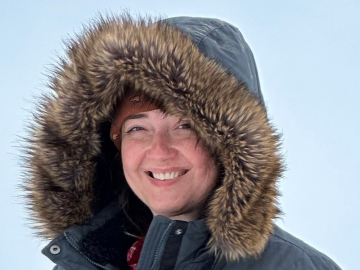
Colleen Iversen, ecosystem ecologist, group leader and distinguished staff scientist, has been named director of the Next-Generation Ecosystem Experiments Arctic, or NGEE Arctic, a multi-institutional project studying permafrost thaw and other climate-related processes in Alaska.
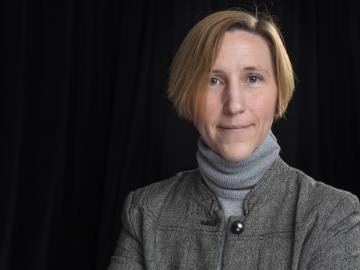
Kelly Chipps, a nuclear astrophysicist at ORNL, has been appointed to the Nuclear Science Advisory Committee, or NSAC. The committee provides official advice to DOE and the National Science Foundation, or NSF, about issues relating to the national program for basic nuclear science research.
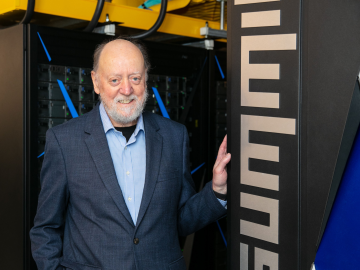
Computing pioneer Jack Dongarra has been elected to the National Academy of Sciences in recognition of his distinguished and continuing achievements in original research.
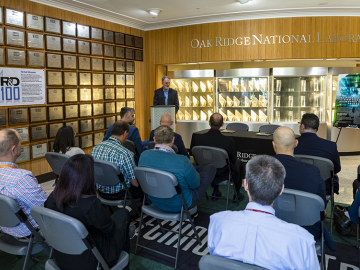
A method using augmented reality to create accurate visual representations of ionizing radiation, developed at ORNL, has been licensed by Teletrix, a firm that creates advanced simulation tools to train the nation’s radiation control workforce.
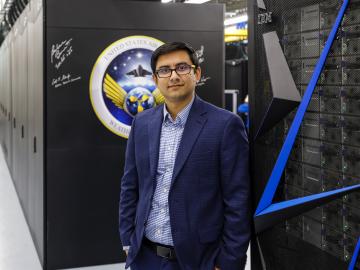
Climate change often comes down to how it affects water, whether it’s for drinking, electricity generation, or how flooding affects people and infrastructure. To better understand these impacts, ORNL water resources engineer Sudershan Gangrade is integrating knowledge ranging from large-scale climate projections to local meteorology and hydrology and using high-performance computing to create a holistic view of the future.

Oak Ridge National Laboratory scientists exploring bioenergy plant genetics have made a surprising discovery: a protein domain that could lead to new COVID-19 treatments.

Andrea Delgado is looking for elementary particles that seem so abstract, there appears to be no obvious short-term benefit to her research.
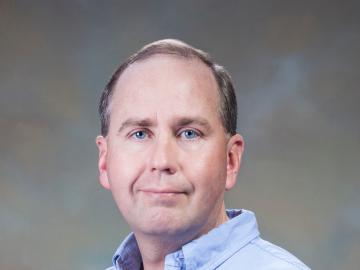
ORNL has named Michael Parks director of the Computer Science and Mathematics Division within ORNL’s Computing and Computational Sciences Directorate. His hiring became effective March 13.
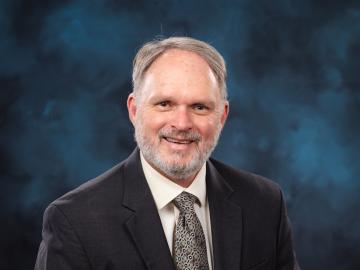
Mickey Wade has been named associate laboratory director for the Fusion and Fission Energy and Science Directorate at the Department of Energy’s Oak Ridge National Laboratory, effective April 1.
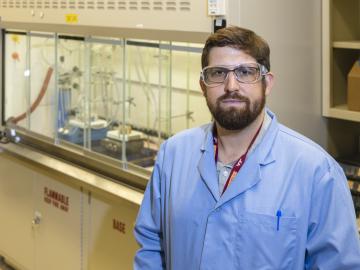
Chemist Jeff Foster is looking for ways to control sequencing in polymers that could result in designer molecules to benefit a variety of industries, including medicine and energy.


